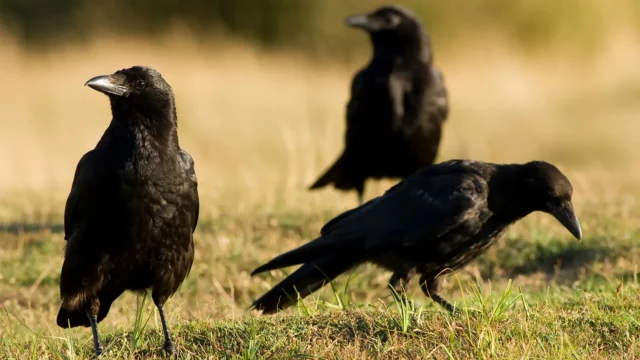Srinagar, Aug 25: A long-term study conducted by researchers at the University of Washington has revealed that crows possess impressive memory, particularly when it comes to recognizing people who pose a threat. The research found that these birds can remember human faces for years and may respond with hostility if they associate someone with danger or distress.
So don’t be surprised if it squeaks aggressively at you on every encounter, along with all its feathery pals, who now hate you equally, by the way.
The study, led by wildlife biologist Dr. John M. Marzluff, used masks to test crow memory. A specific “dangerous” mask was worn by researchers while they captured and released wild crows. Over time, the birds began to react aggressively whenever they saw that mask—even when worn by different people and even years after the initial incident.
Crows that had never seen the masked individual still responded with hostility—cawing, mobbing, and diving. This indicates that the birds had learned about the perceived threat from their peers. The ability to share social information about danger highlights their advanced cognitive and communication skills.
According to studies, if you upset one crow, you may find yourself on the wrong side of the entire neighborhood flock.
Scientists have found that crows have brain structures remarkably similar to the human amygdala—the region that processes emotions and fear. This could explain why emotionally charged memories, such as traumatic or threatening events, stick with them for years. Such neurological wiring gives them the capacity not only to remember but to respond emotionally to specific individuals.
The study sheds light on just how intelligent and socially aware crows are. They’re not just scavengers or background birds in urban life—they’re observant, emotionally complex, and capable of forming long-lasting social memories. Whether it’s sharing information about a dangerous person or remembering a specific act for over a decade, crows exhibit intelligence once thought to be unique to primates and humans.








